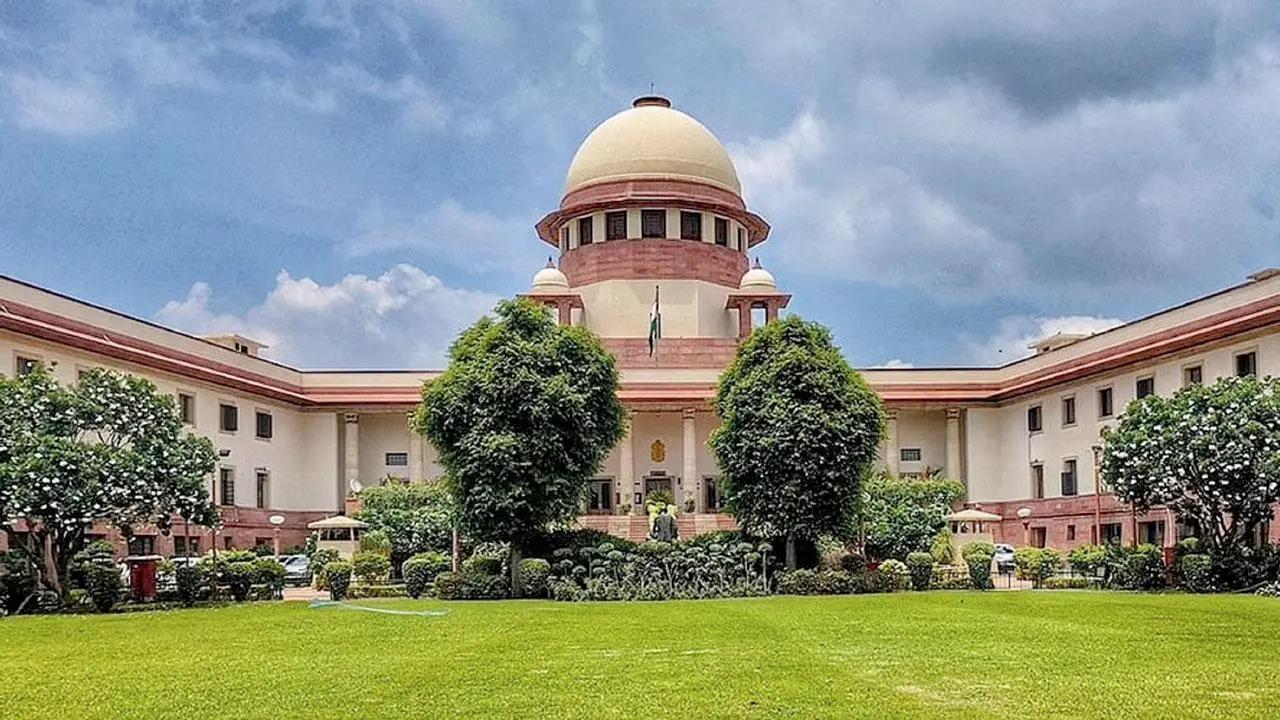The Supreme Court will today hear petitions challenging key provisions of the Places of Worship (Special Provisions) Act, 1991. Petitioners argue the Act violates constitutional rights by preventing religious communities from reclaiming sites altered before independence.

File Pic
The Supreme Court of India is set to hear a batch of petitions on Thursday, challenging key provisions of the Places of Worship (Special Provisions) Act, 1991. This Act mandates maintaining the religious character of all places of worship as they existed on August 15, 1947, barring any legal proceedings to reclaim or alter their nature.
ADVERTISEMENT
A special bench comprising Chief Justice of India Sanjiv Khanna and Justices PV Sanjay Kumar and KV Vishwanathan will preside over the case at 3:30 pm today.
According to ANI, the petitions argue that the Act infringes on the constitutional rights of Hindus, Jains, Buddhists, and Sikhs to reclaim and manage their religious sites, many of which were allegedly altered or destroyed by invaders. The petitioners claim that the Act violates the principles of secularism and the rule of law, both integral to the Constitution.
Prominent petitioners include Maharaja Kumari Krishna Priya, daughter of the Kashi Royal Family; BJP leader Subramanian Swamy; former MP Chintamani Malviya; retired army officer Anil Kabotra; advocates Chandra Shekhar and Rudra Vikram Singh; and religious leaders Swami Jeetendranand Saraswati and Devkinandan Thakur Ji.
They have challenged the constitutional validity of Sections 2, 3, and 4 of the Act, arguing that these provisions restrict their rights under Articles 25 and 26 of the Constitution, which guarantee freedom to practice and manage religious affairs. The petitions further assert that the Act violates Article 29, which safeguards cultural heritage, by preventing communities from reclaiming religious sites of historical and cultural importance.
The Act, enacted in 1991, explicitly prohibits the conversion of any place of worship. Section 3 bars altering the religious character of a site, while Section 4 disallows filing lawsuits or initiating legal proceedings to contest the status of a place of worship as of August 15, 1947.
However, the petitioners argue that this retrospective cutoff date is arbitrary and irrational. They claim the law unfairly deprives certain communities of their rights while allowing others, such as Muslims, to reclaim properties under the Waqf Act.
ANI reports that groups like the Jamiat Ulama-i-Hind and the All India Muslim Personal Law Board have opposed these petitions. They contend that entertaining these challenges could open a floodgate of litigation against countless mosques and other places of worship across India.
The Committee of Management of the Anjuman Intezamia Masjid, responsible for the Gyanvapi mosque in Varanasi, has also filed an intervention application seeking dismissal of the petitions. The management asserts that revisiting the Act’s provisions would destabilise the status quo and fuel communal tensions.
One petitioner highlighted a disparity within the Act itself, which excludes the birthplace of Lord Rama but not that of Lord Krishna, despite both being incarnations of Lord Vishnu. According to ANI, the petitions allege that the Act “blatantly offends” the rights of Hindus, Jains, Buddhists, and Sikhs to manage and administer their religious sites and seek judicial remedies for encroachments.
The pleas further claim that the Act has curtailed their fundamental rights, including the ability to acquire religious properties belonging to their deities. The petitioners argue that such provisions effectively bar them from restoring places of worship that hold deep cultural and historical significance.
(With inputs from ANI)
 Subscribe today by clicking the link and stay updated with the latest news!" Click here!
Subscribe today by clicking the link and stay updated with the latest news!" Click here!







